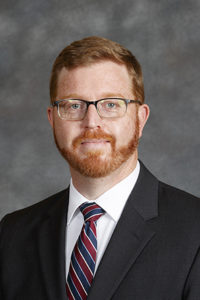Digital keno option proposed
Nebraskans would have a new way to play keno under a bill heard by the General Affairs Committee Feb. 13.

LB232, introduced by Sen. John Cavanaugh of Omaha, would authorize the sale of digital keno tickets for players verified to be at a licensed Nebraska lottery location. Currently, keno tickets are available only in paper form.
Under the bill’s provisions, a lottery operator must file with the state Department of Revenue and provide clear procedural regulations in order to sell digital on-premises tickets. All regulations would be subject to approval by the department.
The bill also would authorize the use of additional ticket payment methods, including debit card, bank account, prepaid cash account or cash balance of a payment application. Additionally, a lottery operator could allow players to create an account to store up to $500 from the player’s winnings or an approved payment method to pay for tickets or wagers.
Credit card purchases or transfers would be prohibited, which Cavanaugh said would ensure that keno play cannot occur outside the facility because geofencing would establish a virtual boundary around the operator’s physical location.
“LB232 would modernize the way keno can be played,” Cavanaugh said. “We can get flights, order groceries, pay parking meters and order lunch [online].”
Bill Harvey, general counsel for Big Red Keno, testified in support of the bill. He said the decision to implement digital on-premises tickets would be up to each operation.
“Each city can decide with their operator whether to adopt this change,” Harvey said. “This is a city run game … and we will honor their choice.”
Harvey also noted that the Legislature recently approved the use of very similar payment methods in casinos.
City of Omaha representative Jack Cheloha also spoke in support of the bill, saying LB232 would help generate more revenue for cities to invest back into their communities.
Cheloha said the revenue generated from keno gaming over the last 30 years has been used for a number of projects in the Omaha area, including funding for new police cruisers, the Nebraska Humane Society, economic development and educational programs for workers.
“Right now, we budget roughly $12 million a year in terms of revenue from our Big Red Keno game in Omaha,” he noted. “The revenue that comes back to us can only be used for community betterment purposes.”
Nebraska Family Alliance representative Nate Grasz testified in opposition to LB232. Any form of gambling, especially state sponsored gambling, puts the interests of the state at odds with the best interests of Nebraskans, he said.
“The changes proposed under this bill make it so that people can lose more money, more easily,” Grasz said. “For the state to win, it’s our own citizens who have to lose.”
Local economist Loretta Fairchild also spoke in opposition to the proposal. She emphasized that more research needs to be done by experts outside the gaming industry to establish necessary regulations.
“The keno industry in this bill is dictating to the state what shall be approved,” she said. “When regulation is needed, the state is in charge of dictating to the industry — not visa versa.”
The committee took no immediate action on LB232.

